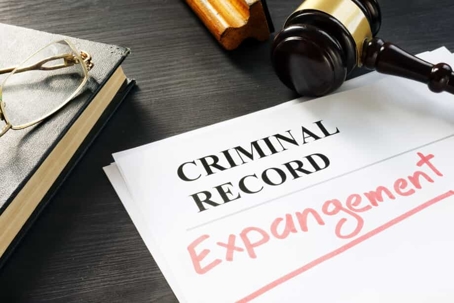Often times, people are charged and ultimately convicted of a crime, whether it’s a misdemeanor or felony, and years later, they wonder if they can get their record expunged. Whether a conviction can be expunged depends on a few things, such as whether the conviction is for a misdemeanor or a felony. As a starting point, an expungement means that the charge or conviction is erased from your record. Think of it as a way to have a clean slate. When a record is expunged, you can legally say that you were not arrested, charged, or convicted of that particular crime.
Regardless of whether the conviction is for a misdemeanor or a felony, there are certain requirements that must be met for it to be expunged. The biggest thing is that all terms and conditions of the sentence must be satisfied. That means all the time must have been served, there is no more probation time, and all fines have to be paid. You also only get one bite at the apple for a misdemeanor and felony, which means that once you use your misdemeanor expungement, you cannot use it again, regardless of any other misdemeanor convictions you may get. You can, however, get a felony expunction, but you only get one bite at that apple, too.
If the conviction is for a misdemeanor, any person can get an expungement if 1) they are a first-time offender, and 2) it is not a traffic violation. What this means is that if you are charged and convicted for a misdemeanor offense, such as simple assault or shoplifting, you can turn around and then request that it be expunged for your record. Keep in mind, though, that traffic violations cannot be expunged, and there are different rules that apply to DUIs (we’ll cover DUIs on a later post).
For felonies, it gets a little more complicated. A person convicted for a felony must wait 5 years AFTER all terms of their sentence are satisfied, which means that the person must wait five years after being done with probation and are done paying their fines and court costs. If they wait until much later to pay off the fines, then the five-year wait period does not begin to start running until the fines are paid in full. The other tricky part is that a person cannot have their record expunged if they were convicted of certain felonies. If you’re curious, here’s the list of felonies that are ineligible for an expungement:
- Any violent crime
- Arson in the first degree
- Trafficking a controlled substance
- A third, fourth, or subsequent DUI
- Felon in possession of a firearm
- Failure to register as a sex offender
- Voyeurism (peeping tom)
- Witness intimidation
- Abuse, neglect, or exploitation of a vulnerable person
- Embezzlement
If someone has been convicted of any of the crimes listed above, then they are automatically disqualified from having their record expunged.
Having a criminal record can seriously diminish your quality of life. It can also cost you job opportunities, professional licenses, and your right to carry a firearm, not to mention child custody disputes and a damaged reputation. If you are tired of having your criminal record follow you around and think that you may qualify (or even if you’re not sure), contact a criminal defense lawyer to find out. It is a simple phone call that could change your life. If you have been charged in Mississippi, feel free to give us a call and we would be happy to help you determine if, and when, you will qualify for an expungement.

